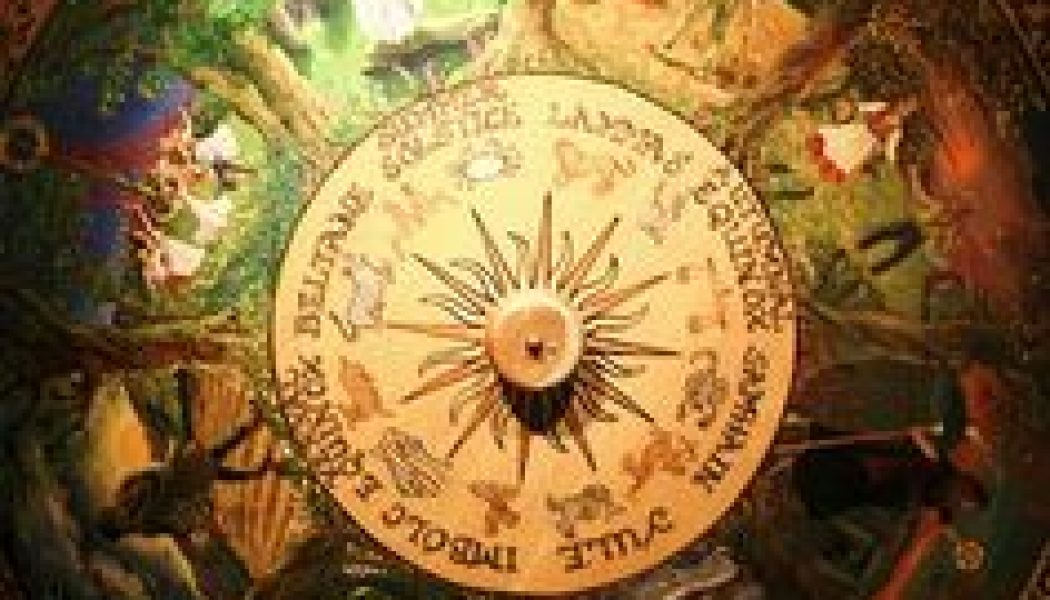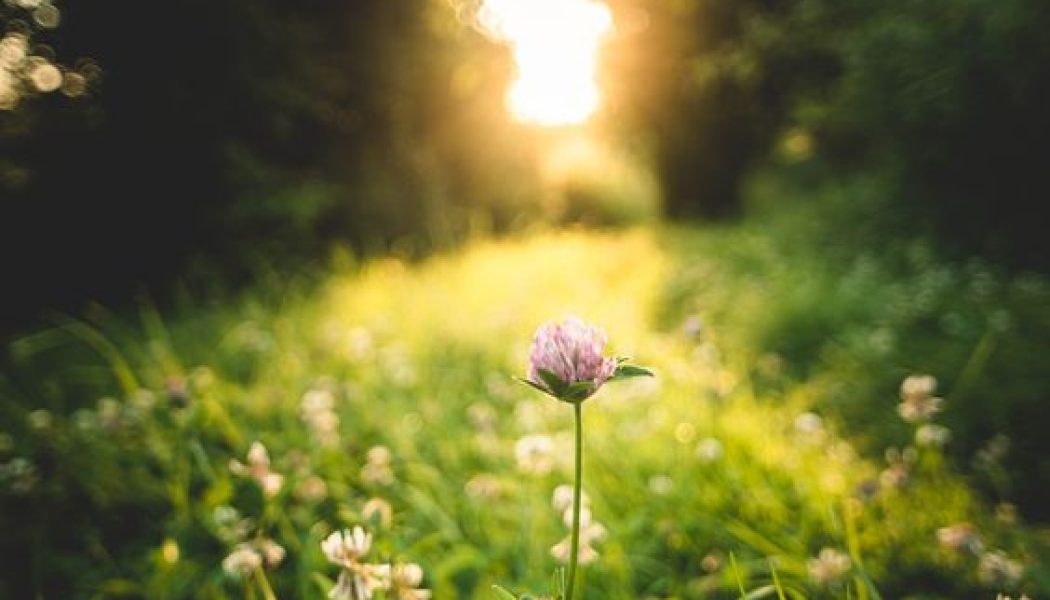Solitary Paganism
Spell Work for a Solitary Pagan Witch: Tips and Techniques for Effective Magick
Tips and Techniques for Effective Magick Spell work is an essential part of Paganism, and it is often used to manifest the practitioner’s desires. For a solitary Pagan witch, spell work can be...
Spell Work for a Solitary Pagan Witch: The Importance of Intent in Spell Work
In spell work, the intention behind the spell is of utmost importance. The intention is what drives the energy and power of the spell towards its desired outcome. Without a clear and focused intention...
Spell Work for a Solitary Pagan Witch: Preparing for Spell Work
Before casting any spell, it is important to prepare yourself and your space. This will help you to focus your energy and intention, and create a safe and sacred environment for your spell work...
Spell Work for a Solitary Pagan Witch: Cleansing Your Space
Before casting any spell, it is important to cleanse your space. This will help to remove any negative energy and create a clear and positive environment for your spell work. Here are some ways to c...
Spell Work for a Solitary Pagan Witch: Gathering Materials
Once your space is cleansed, it’s time to gather the materials you’ll need for your spell work. Here are some things to consider: Remember, the most important thing when preparing for spel...
Unlocking the Magic: A Solitary Pagan Witch’s Guide to Spell Work
So, you’re curious about casting spells solo as a pagan witch? Let me tell you, solitary spellwork is one of the most magical ways to connect with your own energy and the world around you—no coven req...
The Enigmatic Life of a Solitary Witch
Deep in the heart of an ancient forest, whispers of magic entwine with the wind. She is a solitary witch, a weaver of spells and secrets, living in harmony with the whispers of the wild. Her home, a ...
Solitary Pagan Practice: Effective Ways to Ease Depression7
Solitary Pagans can also practice other self-care techniques to help ease depression. These may include: By incorporating these self-care practices into their daily routine, solitary Pagans can promot...
Solitary Pagan Practice: Effective Ways to Ease Depression6
Journaling is a powerful self-care practice that can help to ease depression. Solitary Pagans can use journaling to express their thoughts and feelings, explore their emotions, and gain insight into t...
Solitary Pagan Practice: Effective Ways to Ease Depression5
Spending time in nature is a great way to reduce stress and improve mental health. Solitary Pagans can take regular nature walks to help ease depression. They can take a walk in the woods, by the sea,...
Solitary Pagan Practice: Effective Ways to Ease Depression 4: Yoga
Yoga is another excellent self-care practice that can help to ease depression. Solitary Pagans can practice yoga on their own, using online videos or books to guide them. Yoga can help to reduce stres...
Solitary Pagan Practice: Effective Ways to Ease Depression3 Meditation
Meditation is a powerful tool for reducing stress and promoting relaxation. Solitary Pagans can incorporate meditation into their daily practice to help ease depression. They can use guided meditati...
Solitary Pagan Practice: Effective Ways to Ease Depression 2 Self-Care Practices
Solitary Pagans can practice various self-care techniques to ease depression. These practices can help to promote a sense of well-being, reduce stress, and improve mental health. Here are some self-ca...
Solitary Pagan Practice: Effective Ways to Ease Depression1
Solitary Paganism has been gaining popularity as a spiritual practice for those who prefer to practice alone. It is a way of connecting with nature and the divine without the need for a group or coven...
Anxiety and the Solitary Pagan Symptoms of Anxiety
The symptoms of anxiety can vary from person to person. Some common symptoms include: Feeling nervous, restless or tense A sense of impending danger, panic or doom Rapid breathing or shortness of br...
Anxiety and the Solitary Pagan How Does Anxiety Affect Mental Health?
Anxiety can have a significant impact on mental health. It can lead to depression, low self-esteem, and social isolation. Chronic anxiety can also lead to physical health problems, such as high bloo...
Anxiety and the Solitary Pagan What is Anxiety?
Anxiety is a natural emotional response to stress. It is a feeling of unease, such as worry or fear, that can be mild or severe. Anxiety can be triggered by a variety of situations, including work, re...
Anxiety and the Solitary Pagan What is Solitary Paganism?
Solitary Paganism is a spiritual practice that involves worshipping pagan deities and adhering to pagan beliefs and traditions without belonging to a specific group or coven. Solitary Pagans practice ...
Anxiety and the Solitary Pagan Why do People Choose Solitary Paganism?
There are several reasons why people choose to practice solitary paganism. Some may prefer to practice alone because they have a hard time finding a group or coven that shares their beliefs. Others ma...
Anxiety and the Solitary Pagan Coping Strategies and Self-Care Tips
Like Paganism itself Solitary Paganism can mean many different things to all different types of people. For instance, anoung other things it could be classed as a way of life, a spiritual practice, or...
What is a Solitary Witch?
A solitary practitioner is an individual who chooses to practice their spiritual faith in the privacy of his or her home or other designated space, without the need to participate in a group such as t...
Practising as a Solitary Pagan
Many contemporary Wiccans and other Pagans find that rather than joining a group, they prefer practicing as a solitary. The reasons for this as are as varied as those who walk the path – some may find...
Solitary Pagans: Understanding the Witches Wheel of the Year
Solitary Pagan witches are practitioners of witchcraft who choose to work alone, rather than as part of a coven or group. One of the most important aspects of their practice is the Wheel of the Year, ...
Solitary Pagan Witches: Celebrating the Solstices Alone
Solitary pagan witches celebrate the solstices as an important part of their spiritual practice. These witches follow a path that is individualistic and self-directed, and they often find solace and c...
Solitary Pagan Moon Magick: How to Practice Powerful Rituals Alone
Solitary pagan moon magick is a spiritual practice that involves working with the cycles of the moon to harness its energy and power. This practice is often performed by pagans who prefer to work alon...
Solitary Pagan Ritual: A Guide to Performing a Sacred Ceremony Alone
Solitary Pagan Rituals are a form of spiritual practice that involve performing rituals alone, rather than in a group or coven setting. These rituals can be performed in a variety of settings, from a ...
Solitary Paganism: Exploring the Practice of Worshiping Alone
Solitary Paganism is a spiritual path that is often misunderstood and misrepresented. It is a form of Paganism that does not involve group rituals or the worship of a specific deity. Instead, it is a ...































